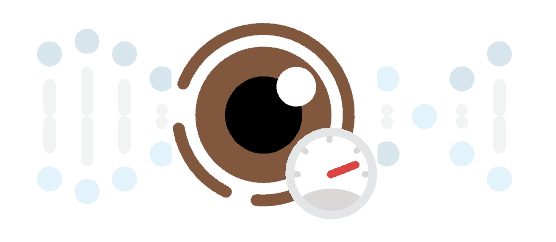Explore Glaucoma and what your DNA can tell you
What is glaucoma?
Glaucoma is a group of eye conditions that occurs when the nerve in the back of the eye (called the optic nerve) is damaged, most commonly due to high eye pressure. Optic nerve damage can cause gradual vision loss that may start as blind spots or loss of side (peripheral) vision and worsen over time.
In glaucoma, the nerve in the back of the eye, called the optic nerve, becomes damaged, causing vision loss that may progress to permanent blindness. Most, but not all, cases of glaucoma are caused by an imbalance of fluid and pressure in the eye. Typically, equal amounts of fluid enter and drain out of the eye at the same time. If fluid cannot properly drain or if too much fluid is produced, then fluid may build up in the eye. This can cause the pressure in the eye to increase and can damage the optic nerve.
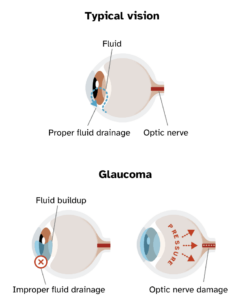
There are several types of glaucoma. “Open-angle glaucoma” is the most common form and usually is caused by a buildup of protein in the eye that prevents fluid from draining. Open-angle glaucoma may be genetic or result from an eye surgery or eye injury. “Angle-closure glaucoma” is a rarer form and is caused by fluid being unable to drain from the eye due to the eye’s anatomy.
How can glaucoma impact your health?
Vision loss from glaucoma can present in many different ways, such as loss of side (peripheral) vision or blind spots. Vision loss may be so slow that it is barely noticeable, so if you have concerns about glaucoma, talk to a healthcare professional about whether getting regular screening is right for you. For cases of glaucoma caused by increased pressure in the eye, treatments such as medicated eye drops, laser therapy, or surgery can reduce pressure in the eye and slow vision loss.
In some cases of angle-closure glaucoma, the pressure in the eye may increase suddenly, which can cause vision loss, headache, severe eye pain, nausea, and vomiting. This is a serious condition that requires immediate medical care and can result in permanent blindness if not treated quickly.
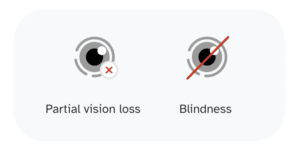
Is glaucoma genetic?
Genetics do play a role in glaucoma. This means some people may be more likely to develop glaucoma than others, depending on their genetics. In most cases, it is a combination of many different genetic variants that impact a person’s chances of developing glaucoma. Individually, each of these variants only has a small impact on a person’s genetic likelihood, but that impact can grow when many variants are considered together. 23andMe takes into account more than 8,000 genetic markers to estimate the likelihood of developing glaucoma, but keep in mind that other factors besides genetics can also influence a person’s overall likelihood of developing glaucoma.
Find out how genetic testing for Glaucoma works.
Other factors that may cause an increased likelihood of glaucoma
It is estimated that over 3 million Americans have glaucoma, and glaucoma is among the leading causes of blindness. Besides genetics, some factors that can increase a person’s chances of developing glaucoma include:
- Age (glaucoma is more common as people get older, especially after age 40 for people of African/African American descent or age 60 for other ethnicities)
- Family history of glaucoma
- Ethnicity (open-angle glaucoma is more common in people of African/African American or Hispanic/Latino descent; angle-closure glaucoma is more common in people of East Asian, South Asian, and Southeast Asian descent)
- Certain health conditions (including increased eye pressure, diabetes, high blood pressure, and nearsightedness)
- Currently taking certain medications (including long-term use of corticosteroids, especially in eye drops)
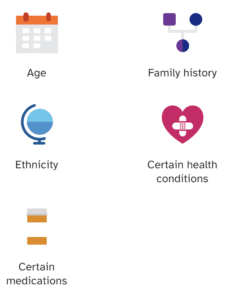
Find out if your genetics might increase your likelihood of developing glaucoma
Curious whether you have an increased likelihood of developing glaucoma based on your genetics? Find out more with the Glaucoma report (Powered by 23andMe Research), part of the 23andMe+ Premium membership. 23andMe+ Premium includes our Health + Ancestry Service plus new premium reports and features throughout the year.
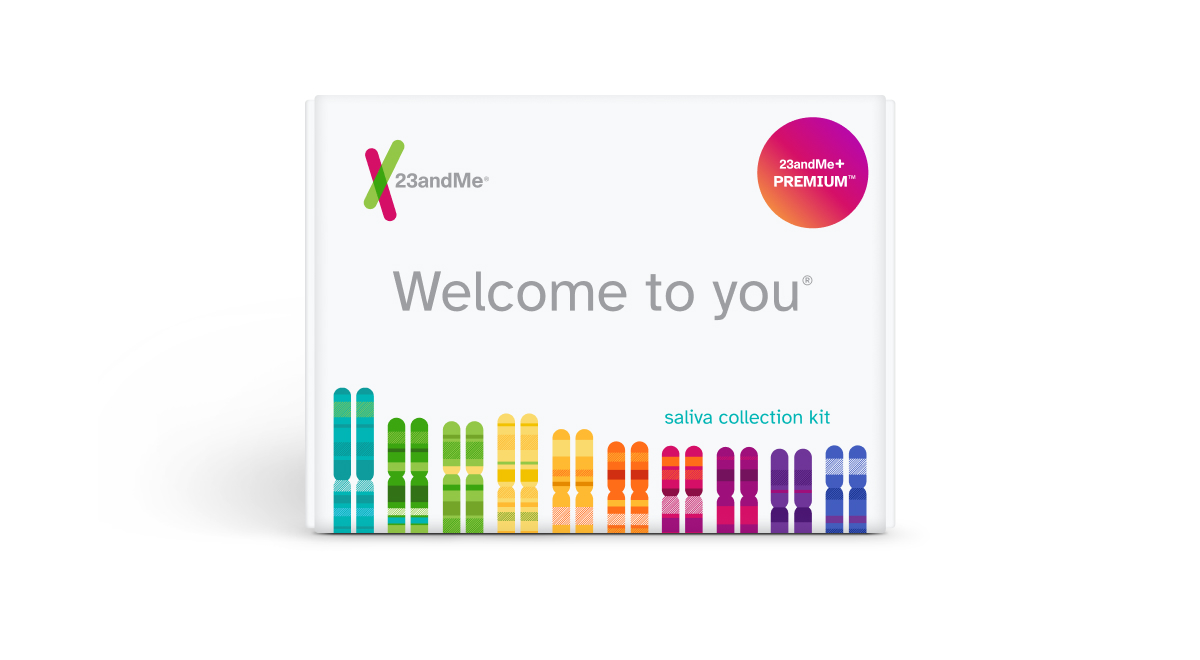
23andMe+ Premium
Please note:
- This report does not diagnose glaucoma and should not be used to make medical decisions.
- The report was developed by 23andMe scientists using data and insights gathered from thousands of customers who consent to participate in our research. Reports based on 23andMe research provide an estimate of your likelihood of developing a condition based on your genetics and other factors. This report does not account for lifestyle, age, or family history.
- The report does not account for every possible genetic variant that could affect your likelihood of developing glaucoma.
References:
Gupta D et al. (2016). “Glaucoma.” Am Fam Physician. 93(8):668-74.
